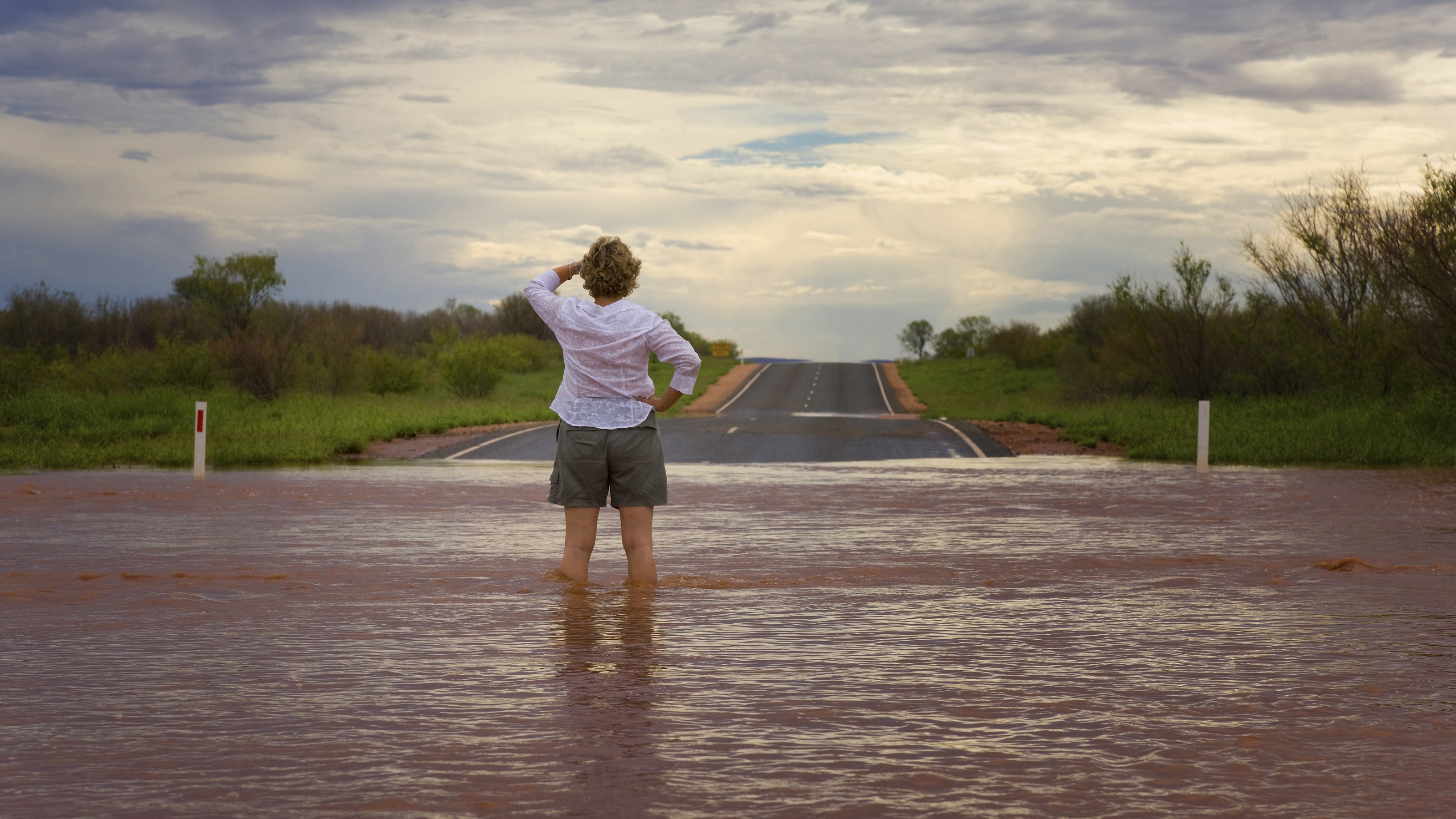Protecting Your Financial Health After a Natural Disaster
As you begin to recover, these three tips can help you protect your financial health.


Profit and prosper with the best of Kiplinger's advice on investing, taxes, retirement, personal finance and much more. Delivered daily. Enter your email in the box and click Sign Me Up.
You are now subscribed
Your newsletter sign-up was successful
Want to add more newsletters?

Delivered daily
Kiplinger Today
Profit and prosper with the best of Kiplinger's advice on investing, taxes, retirement, personal finance and much more delivered daily. Smart money moves start here.

Sent five days a week
Kiplinger A Step Ahead
Get practical help to make better financial decisions in your everyday life, from spending to savings on top deals.

Delivered daily
Kiplinger Closing Bell
Get today's biggest financial and investing headlines delivered to your inbox every day the U.S. stock market is open.

Sent twice a week
Kiplinger Adviser Intel
Financial pros across the country share best practices and fresh tactics to preserve and grow your wealth.

Delivered weekly
Kiplinger Tax Tips
Trim your federal and state tax bills with practical tax-planning and tax-cutting strategies.

Sent twice a week
Kiplinger Retirement Tips
Your twice-a-week guide to planning and enjoying a financially secure and richly rewarding retirement

Sent bimonthly.
Kiplinger Adviser Angle
Insights for advisers, wealth managers and other financial professionals.

Sent twice a week
Kiplinger Investing Weekly
Your twice-a-week roundup of promising stocks, funds, companies and industries you should consider, ones you should avoid, and why.

Sent weekly for six weeks
Kiplinger Invest for Retirement
Your step-by-step six-part series on how to invest for retirement, from devising a successful strategy to exactly which investments to choose.
In the wake of a natural disaster or hurricane like those that recently ravaged the South, many individuals and families find themselves facing unimaginable challenges. The chaos and destruction have disrupted lives in profound ways: Homes are damaged or destroyed, and immediate needs for shelter, food and clothing are the priority.
As communities grapple with the immediate devastation, the road to recovery can feel overwhelming. While basic necessities certainly take precedence, when possible, it’s important for hurricane victims to consider potential impacts to their financial health and identity that may not initially be top of mind to avoid additional stress or financial losses.
If you’ve been impacted by a hurricane or other natural disaster, here are three tips to protect your financial health as you begin to recover:
From just $107.88 $24.99 for Kiplinger Personal Finance
Become a smarter, better informed investor. Subscribe from just $107.88 $24.99, plus get up to 4 Special Issues

Sign up for Kiplinger’s Free Newsletters
Profit and prosper with the best of expert advice on investing, taxes, retirement, personal finance and more - straight to your e-mail.
Profit and prosper with the best of expert advice - straight to your e-mail.
Safeguard your identity
Natural disasters aside, instances of identity theft are increasing drastically.
Hurricane victims may find important documents that include valuable personal information scattered or lost completely, and after a natural disaster, it’s common for criminals to try to steal personal information or money through identity theft and disaster-related financial schemes.
It’s important to be wary of scammers and take proactive steps to protect your identity after a hurricane, including taking advantage of free credit monitoring and fraud alerts. If you notice anything suspicious, report it immediately to your bank or financial institution. If your personal information has been compromised, you may also consider freezing your credit file with each of the three credit reporting agencies to prevent any new fraudulent credit applications.
Contact your lenders
In times of crisis, including natural disasters, many financial institutions are willing to work with affected consumers. If you were impacted by a storm and are worried you may be unable to pay your bills on time, reach out to your mortgage, auto loan and credit card companies as soon as possible.
Your lenders can report accounts as deferred or in forbearance for a specified period if you live in an area impacted by a natural disaster. While the account is deferred or in forbearance, no late payments will be reported, helping you focus on other important issues. However, interest might continue to accrue. Be sure to ask your lenders about account deferment or forbearance if you are affected and make sure you understand the terms of the agreement.
Understandably, tracking down the contact information for each of your lenders may seem like an overwhelming task at a time like this, but your credit report can be a helpful starting point. You can find contact information and documentation for all your lenders included in your credit report, which you can access for free at www.annualcreditreport.com or via the Experian website.
Avoid purchasing flood-damaged goods and vehicles
In the months and years following significant storms, there is a high likelihood that flood-damaged goods and vehicles will be back on the market. Be mindful of your purchases. There are also tools available to help consumers avoid buying flood-damaged vehicles by checking vehicle history reports. That said, it’s always recommended that you have the vehicle inspected by a licensed mechanic before purchase.
Recovering from a hurricane or other natural disaster is a deeply challenging journey that requires strength, resilience and support. Understandably, if you’ve been impacted by a natural disaster, protecting your credit may be one of the last things on your mind. However, a lack of knowledge could damage your financial health at a time when you need access to credit the most.
By prioritizing identity protection, credit monitoring and communication with lenders and being cautious about purchases, you can take meaningful steps to protect and restore your financial health. While the path ahead may be difficult, these actions can help pave the way toward recovery and stability.
Related Content
- How to Save Financial Documents and Information in Case of a Storm
- Look Out for Scams and Price Gouging Amid Hurricanes, Officials Warn
- ‘Storm Chaser’ Scammers Are Targeting Natural Disaster Victims
The information provided here is not investment, tax or financial advice. You should consult with a licensed professional for advice concerning your specific situation.
Profit and prosper with the best of Kiplinger's advice on investing, taxes, retirement, personal finance and much more. Delivered daily. Enter your email in the box and click Sign Me Up.

Rod Griffin, Senior Director of Consumer Education and Advocacy for Experian, has more than 20 years in the information services industry. He is a recognized expert in consumer credit reporting and scoring, fraud and identity theft and other consumer information and data use issues and is quoted regularly in national print, online and broadcast media.
-
 Dow Leads in Mixed Session on Amgen Earnings: Stock Market Today
Dow Leads in Mixed Session on Amgen Earnings: Stock Market TodayThe rest of Wall Street struggled as Advanced Micro Devices earnings caused a chip-stock sell-off.
-
 How to Watch the 2026 Winter Olympics Without Overpaying
How to Watch the 2026 Winter Olympics Without OverpayingHere’s how to stream the 2026 Winter Olympics live, including low-cost viewing options, Peacock access and ways to catch your favorite athletes and events from anywhere.
-
 Here’s How to Stream the Super Bowl for Less
Here’s How to Stream the Super Bowl for LessWe'll show you the least expensive ways to stream football's biggest event.